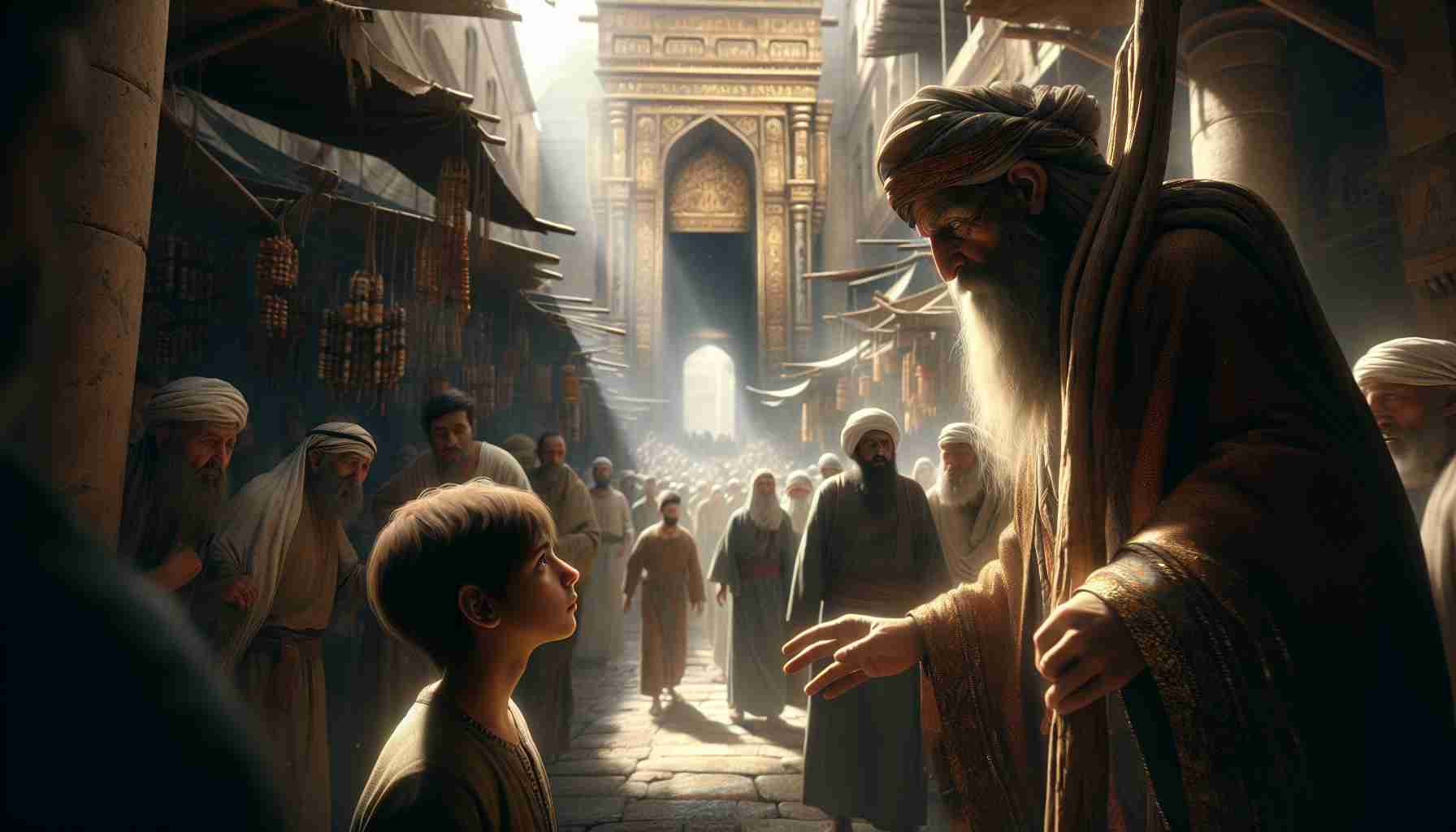

I was a craftsman, a simple woodworker living in Jerusalem when the prophet Jeremiah walked into my shop one morning. I had just finished shaping a beam—it still smelled of fresh cedar. He stood silently as the shavings curled around my feet, and I could feel his eyes weighing more than the timber in my hands.
“Make me a yoke,” he said plainly.
I blinked. “For oxen?”
“For my neck,” Jeremiah replied.
I paused, unsure if I’d heard him correctly. “Prophet, do you mean to wear it yourself?”
He nodded. “As a sign to the people and kings. Babylon’s yoke is coming.”
The Babylonians—under King Nebuchadnezzar, who now ruled half the world—were swallowing cities like dry bread. But many in Jerusalem believed Egypt would save us. Even the priests spoke of victory, not surrender. Jeremiah's words, always hard to hear, had started to anger the people. He told us we must bow to Babylon or be destroyed.
I made the yoke quietly and solid, with thick leather straps and a beam curved to fit the shoulders of a man. As I worked, I wondered what it meant to carry a yoke not from an invader, but from God.
The next day, I followed him to the Temple courtyard. He wore it around his neck like it was meant to be there—not as a punishment, but a warning. “This is the yoke of Babylon,” he cried out. “God Himself has given all these lands into Nebuchadnezzar’s hand. Those who do not serve him will suffer. Serve the king of Babylon and live.”
Some scoffed. Others turned away. But I saw the sadness weighing him down far more than the wooden frame.
A false prophet named Hananiah stepped forward and shouted, “Thus says the Lord: 'I have broken the yoke of the king of Babylon!’” The crowd cheered as he ripped the yoke from Jeremiah’s neck and smashed it on the ground. Splinters flew like sparks from a fire.
I thought Jeremiah would argue. Instead, he walked away.
That night, I couldn’t sleep. I kept thinking about the yoke—how it had been worn in obedience to God’s word, even if it brought shame. Days later, word spread that Jeremiah returned with a new message: “You have broken a wooden yoke, but you will have to wear one of iron.” He said that because we refused to listen, the burden would only grow heavier.
And then it happened. Nebuchadnezzar came. He took our king, our treasures, even the vessels of the Temple. Many of us were taken in chains—just like the yoke had warned.
I stayed behind, but I carried a different weight now. In my heart, I finally understood: true strength isn’t found in fighting against what God declares. It’s in yielding, in trusting Him, even when the path is heavy and hard to walk.
I still make yokes, but I never forgot the one Jeremiah wore—not of wood or iron, but of obedience.
I was a craftsman, a simple woodworker living in Jerusalem when the prophet Jeremiah walked into my shop one morning. I had just finished shaping a beam—it still smelled of fresh cedar. He stood silently as the shavings curled around my feet, and I could feel his eyes weighing more than the timber in my hands.
“Make me a yoke,” he said plainly.
I blinked. “For oxen?”
“For my neck,” Jeremiah replied.
I paused, unsure if I’d heard him correctly. “Prophet, do you mean to wear it yourself?”
He nodded. “As a sign to the people and kings. Babylon’s yoke is coming.”
The Babylonians—under King Nebuchadnezzar, who now ruled half the world—were swallowing cities like dry bread. But many in Jerusalem believed Egypt would save us. Even the priests spoke of victory, not surrender. Jeremiah's words, always hard to hear, had started to anger the people. He told us we must bow to Babylon or be destroyed.
I made the yoke quietly and solid, with thick leather straps and a beam curved to fit the shoulders of a man. As I worked, I wondered what it meant to carry a yoke not from an invader, but from God.
The next day, I followed him to the Temple courtyard. He wore it around his neck like it was meant to be there—not as a punishment, but a warning. “This is the yoke of Babylon,” he cried out. “God Himself has given all these lands into Nebuchadnezzar’s hand. Those who do not serve him will suffer. Serve the king of Babylon and live.”
Some scoffed. Others turned away. But I saw the sadness weighing him down far more than the wooden frame.
A false prophet named Hananiah stepped forward and shouted, “Thus says the Lord: 'I have broken the yoke of the king of Babylon!’” The crowd cheered as he ripped the yoke from Jeremiah’s neck and smashed it on the ground. Splinters flew like sparks from a fire.
I thought Jeremiah would argue. Instead, he walked away.
That night, I couldn’t sleep. I kept thinking about the yoke—how it had been worn in obedience to God’s word, even if it brought shame. Days later, word spread that Jeremiah returned with a new message: “You have broken a wooden yoke, but you will have to wear one of iron.” He said that because we refused to listen, the burden would only grow heavier.
And then it happened. Nebuchadnezzar came. He took our king, our treasures, even the vessels of the Temple. Many of us were taken in chains—just like the yoke had warned.
I stayed behind, but I carried a different weight now. In my heart, I finally understood: true strength isn’t found in fighting against what God declares. It’s in yielding, in trusting Him, even when the path is heavy and hard to walk.
I still make yokes, but I never forgot the one Jeremiah wore—not of wood or iron, but of obedience.